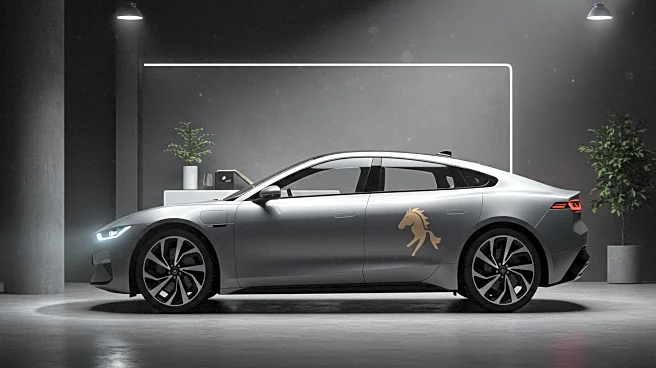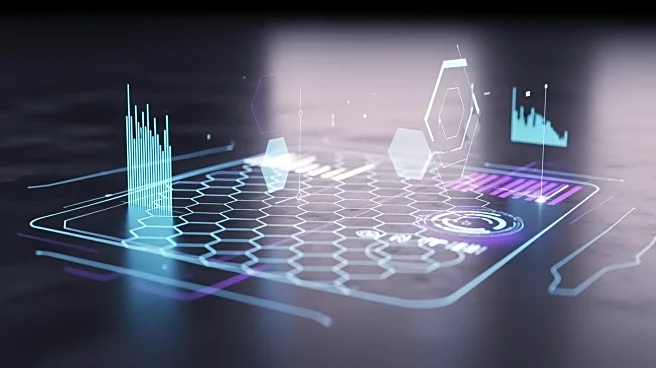What is the story about?
What's Happening?
Volkswagen has implemented a subscription model for unlocking additional horsepower in its ID.3 electric vehicle in the United Kingdom. The base models, ID.3 Pro and Pro S, are listed with 201 horsepower, but owners can opt to pay for a power upgrade to access the full 228 horsepower. This upgrade can be activated through a monthly, yearly, or lifetime subscription, with costs ranging from £16.50 per month to £649 outright. This move follows similar strategies by other automakers, such as Mercedes-Benz, which offers a subscription for acceleration increases in its EQ models. The decision reflects a growing trend among automakers to explore new revenue streams through software-based features.
Why It's Important?
The introduction of subscription-based features in vehicles marks a significant shift in the automotive industry, potentially altering consumer expectations and ownership experiences. By monetizing software upgrades, automakers can generate recurring revenue, which is particularly appealing during times of economic uncertainty and rising production costs. However, this approach raises questions about consumer rights and the true ownership of vehicles, as software licenses may restrict access to certain features. The trend could impact the right-to-repair movement and lead to legal challenges regarding vehicle ownership and software copyrights.
What's Next?
While Volkswagen's subscription model is currently limited to the UK, its success or failure could influence similar strategies in other markets, including the United States. Automakers may continue to explore subscription models for various features, potentially leading to broader industry adoption. Consumer reactions and legal challenges could shape the future of such practices, as stakeholders debate the implications for vehicle ownership and consumer rights.
Beyond the Headlines
The shift towards software-based subscriptions in vehicles highlights broader ethical and legal concerns regarding consumer rights and ownership. As automakers embed more software into vehicles, the distinction between hardware and software ownership becomes increasingly blurred. This development could lead to long-term changes in how consumers perceive vehicle ownership and the value of physical versus digital assets.















